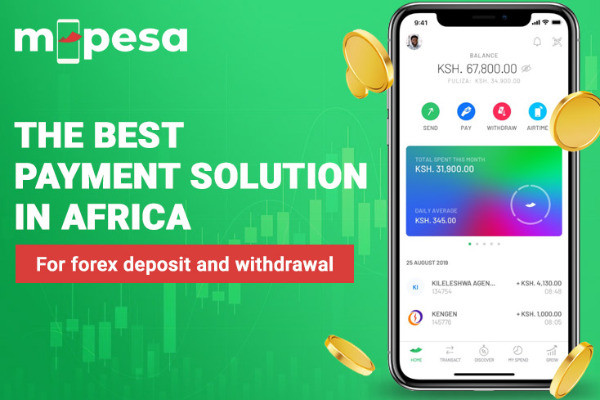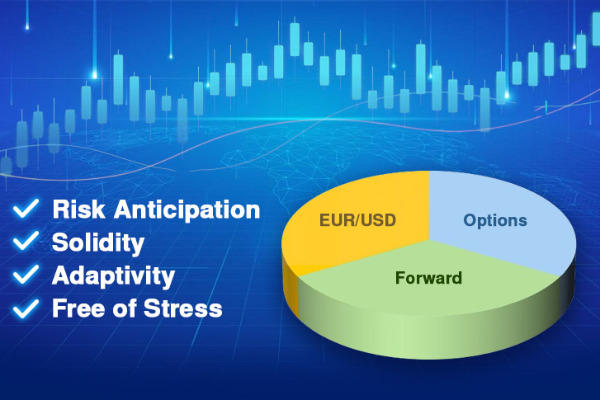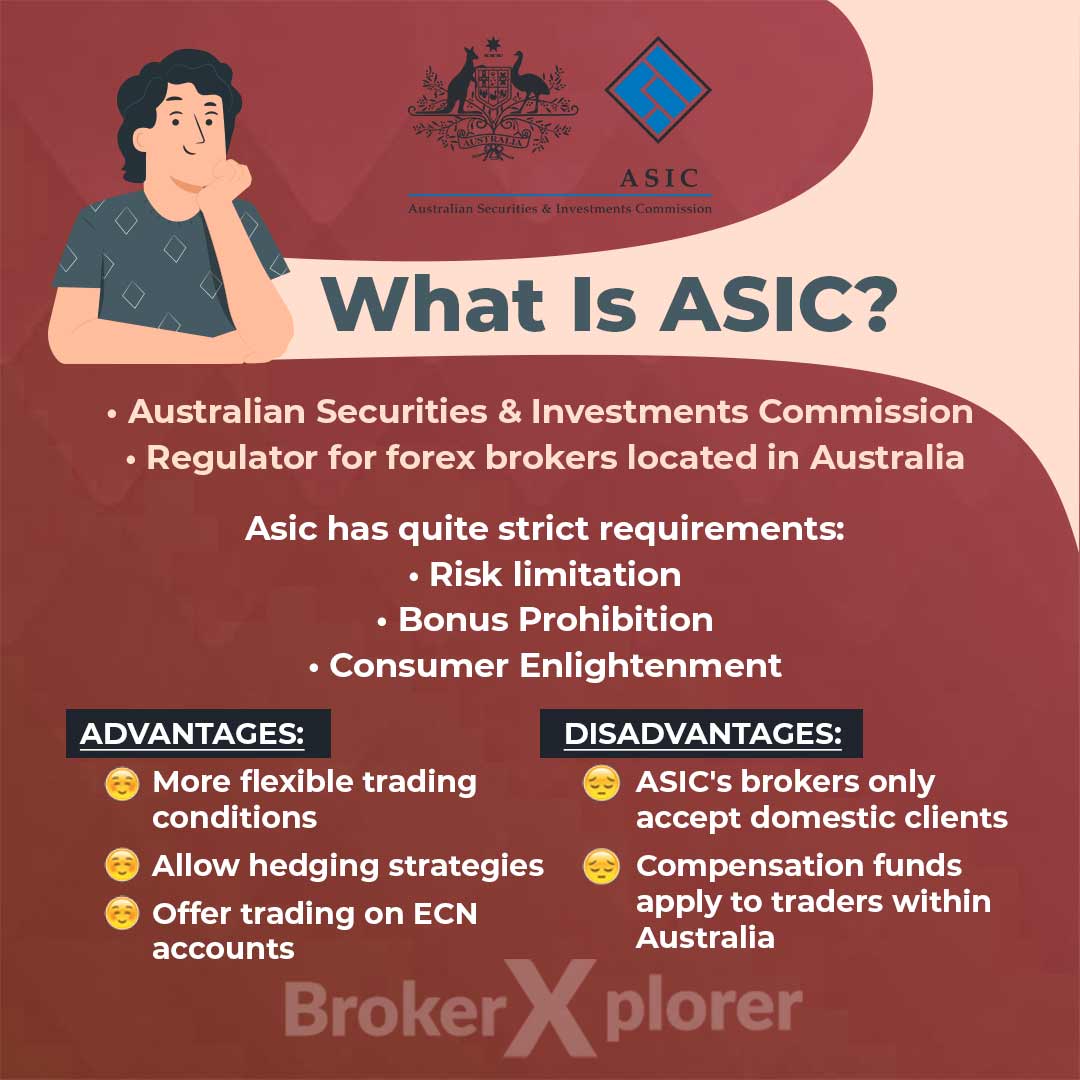Aside from participating as a trader, you can register in a forex broker to earn income from its forex affiliates program. How does it work and what important things to consider?

Affiliate marketing has evolved into one of the most popular methods of online advertising. One of the main factors contributing to its popularity is that no previous sales experience is required. When it comes to marketing materials, most affiliate programs provide excellent support.
Affiliate marketing's versatility helps you to become an online marketer for the least amount of money and with the least amount of effort. You can even start your own affiliate marketing company from the comfort of your own home. You are only responsible for finding customers for the company; you are not responsible for manufacturing, order handling, or product delivery. The manufacturer is responsible for these, as well as customer service assistance. Also, you can from tens of thousands of services. For any commodity underneath the sun, there is an affiliate network.
Because of the pay-for-performance system, affiliate marketing programs are characterized as a win-win solution for both the merchant and the affiliate. Affiliate marketing provides incentives to both the merchant and the affiliate. On the merchant's hand, there are numerous advantages. It allows the merchant to reach a larger audience with their product or service, and promote the product or service with full visibility that it would not otherwise receive from other forms of conventional advertisement. The more partner sites a retailer has, the more traffic they can generate, which can lead to sales.
Understanding Forex Affiliate Program
While the majority of our readers are interested in learning more about forex trading and how to do it correctly, in this article, we've chosen to focus on a different section of the forex industry. What we will cover is the forex affiliate program. For years, forex has been a lucrative niche, and with forex affiliate program, it became even more exciting and attractive.
The advertising of the brokerage firm's services is what forex affiliate marketing entails. It's one of the most straightforward ways for someone who became a trader with a website to earn money online. A company (usually a brokerage) and a website owner can enter into an affiliate marketing arrangement with some simple steps.
By linking to the company's website, the website owner who at this point becomes a partner or affiliate, makes use of their platform to promote the company's service. In return, the company pays the partner a fee based on certain payment systems. Generally, the affiliate receives a fee every time anyone clicks on the partner's referral link and starts trading.
Joining a forex affiliate program is a fantastic way to make money from home. There is no production cost at all. Affiliate services are normally free to enter, so there are no upfront expenses for affiliates.
As for the ways to promote the trading service, you can quickly find thousands of opportunities thanks to the internet's global scope. You can boost the effectiveness of your marketing campaign by implementing more aggressive and effective tactics like viral marketing. In addition, you can also use social media accounts, video networks, direct mail, and their websites to accomplish this.
Another advantage of working with a forex affiliate program is the low risk involved. If the service you're promoting isn't profitable, you can always stop it and try something else. There are no long-term contracts that tie you to services that aren't profitable enough.
There were several categories of how traders can earn extra revenues from forex affiliate marketing and they are divided into four schemes:
1. Revenue Sharing
For certain brokerage firms, these types of arrangements might be really appealing. The truth is that if a trader just signs up and does not conduct any trades, the broker is not required to pay anything to the affiliate. Instead, the brokerage firm only pays its partners a percentage of the fees and spreads it receives from the traders. As a result, there is very little financial risk associated with the procedure.
There are some flaws in this system though. The brokerage company's disadvantage in this agreement is that it must share the revenue earned from certain traders with affiliate marketers indefinitely. Usually, there is no way to settle all affiliate accounts with a single payment and keep all potential earnings for themselves.
Another obvious issue is that not every trader who registers for a trading account can deposit funds and engage in daily trading activity. This means that a partner can bring up to 20 traders but only benefits from the trading activities from only 5 of them since the remaining 15 traders simply made another decision and did not deposit funds or start trading.
2. Cost-per-action
The cost-per-action commission scheme is another commonly used contract scheme. The underlying principle is that if the partner is effective in recruiting a trader and that trader meets certain parameters, the brokerage company will pay the affiliate a flat fee for each such applicant. The exact percentage varies depending on the new trader's location as well as a few other factors.
It should go without saying that these kinds of agreements will benefit all parties. This allows affiliate marketers to receive substantial payments for each customer who meets the broker's requirements. In comparison to revenue-sharing deals, this allows them the opportunity to gain a higher income.
The disadvantage of this form of deal for brokerage firms is that there is no guarantee that the trader can continue to trade with them after the broker has made the cost-per-action payment to the affiliate. Since such fees are typically higher than those in other categories, there is always the possibility that the brokerage firm will experience a deficit. While this is unlikely to happen for the majority of traders, it is a threat that brokers are aware of.
3. Cost-per-lead
Another commission scheme to consider is the cost-per-lead. The marketer receives a single payment for each trader rather than distributing it with the incomes. It can also be an appealing choice for brokerage firms, as they only have to make one payment for every new trader and they are not required to share any potential commissions with the affiliate marketer.
On the other hand, brokerage firms make it clear that if you want affiliate marketing services that sound similar, the total size of the fee would be much less than a cost-per-action scheme. As a result, this might not be the right approach for affiliate marketers to improve their monthly earnings.
Still, this scheme has some drawbacks for brokers. There is no indication that the person who signed up and checked his or her email address and contact number will be able to deposit money and trade on a regular basis. As a result, there is also some financial risk in those scenarios. However, since the payment levels are not as high as in the previous schemes, the risk exposure here could be lower.
4. Hybrid Scheme
Some affiliate marketers are very fond of this commission structure. It does, however, have drawbacks, as with all of the previous examples. The truth is that the value of the commissions in dollar or percentage terms can even be lower in hybrid agreements. As an example, the broker might suggest that it pays the affiliate several amounts of the revenue earned from the client under a revenue-sharing arrangement. But due to the fact that cost per lead often includes a flat fee, the marketer's share of the hybrid could be limited.
Revenue share, cost per action, cost per lead, and hybrid are the four forms of commission schemes used in Forex affiliate marketing. Each one has its own set of advantages and disadvantages. Aside from financial considerations, you should look for a good account manager and a brokerage firm with a good reputation to partner with when ing an affiliate program.
How to Choose the Best Forex Affiliate Program?
Now that you've already got the main forex affiliate programs covered, the next step is to figure out which one is the best. Consider the following factors when determining which to accept and which to deny:
- If you don't have a lot of time to advertise affiliate services by making posters, graphics, and posts, search for affiliate services that assist you in doing so.
- It would be fantastic if the company offers training on how to promote the services effectively online. Remember that affiliate marketing is collaboration, so make sure your partner can help you promote its company services.
- Make sure that you partner with a legal brokerage to avoid any misleading schemes that lead to your traders' losses. In order to do this, you should learn how to recognize and avoid forex scams and frauds.
- You'll need information to make the best decision possible. This way, you'll be able to find a system that's designed for specific requirements. You'll find it easier to exclude choices that don't meet the requirements for a successful forex affiliate marketing program.
- Learn some tips and get feedback from knowledgeable affiliate marketers by joining affiliate forums. However, before you accept their suggestions, be smart enough to weigh them.
- Make a list of all the benefits and drawbacks of each program you're considering so you can see the differences between them; then compare the benefits of the programs using your own checklist.
Take the time to collect all of the information you'll need to choose the best program for you. Remember that making an informed choice even though it may take longer is better than making a rushed but problematic decision.
If you look for a good forex affiliates program based on the brokerage offerings for clients, you may want to compare some brokers to get a better insight. In this case, you can compare brokers side by side for an easier approach.

 Dedicated FREE FOREX VPS
Dedicated FREE FOREX VPS Free FOREX Virtual Private Server
Free FOREX Virtual Private Server MT4 Demo Contest, Get $500
MT4 Demo Contest, Get $500 Sign Up for an Account, Claim 60% Deposit Bonus
Sign Up for an Account, Claim 60% Deposit Bonus Free MT4/MT5 VPS 2024
Free MT4/MT5 VPS 2024 Send E-mail and Get Free Merchandise
Send E-mail and Get Free Merchandise $1K Refer a Friend Bonus for Pepperstone Pro clients
$1K Refer a Friend Bonus for Pepperstone Pro clients Maximize Your Earnings with 100% Deposit bonus
Maximize Your Earnings with 100% Deposit bonus Trade to Win, $5,000 Monthly Demo Contest
Trade to Win, $5,000 Monthly Demo Contest Claim 30% + 15% Deposit Bonus from LiteFinance
Claim 30% + 15% Deposit Bonus from LiteFinance








